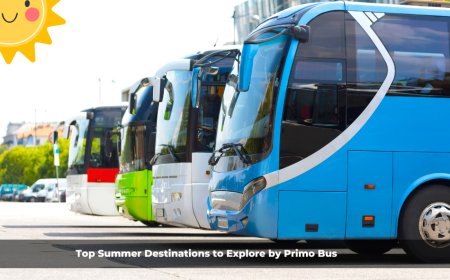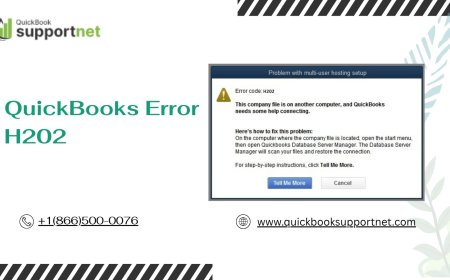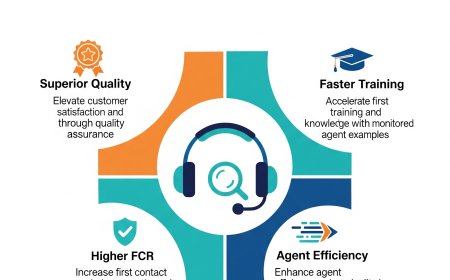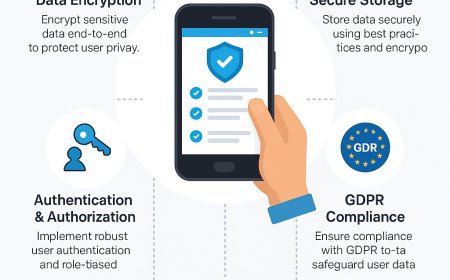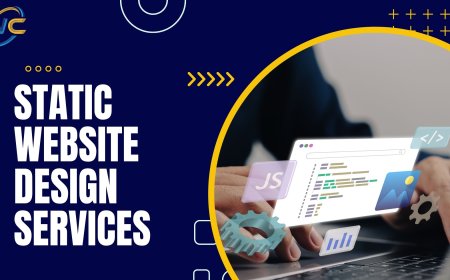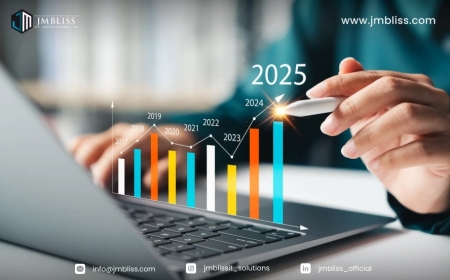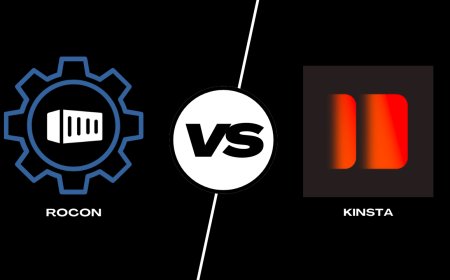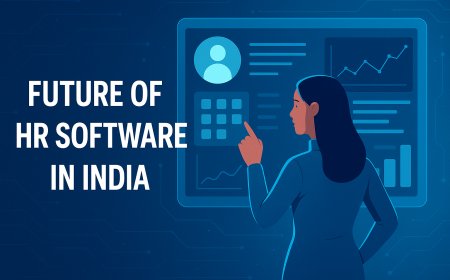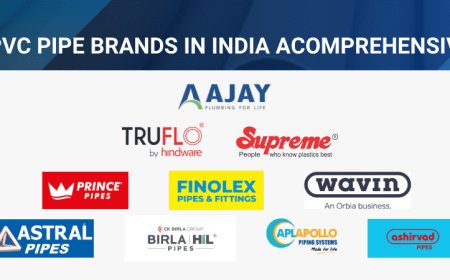How To Watch Plaza Classic Film Festival El Paso Free
How to Watch Plaza Classic Film Festival El Paso Free The Plaza Classic Film Festival (PCFF) in El Paso, Texas, is more than just a cinematic event—it’s a cultural institution that celebrates the art of film through curated screenings of classic, cult, and rarely shown motion pictures. Held annually in the historic Plaza Theatre, this beloved festival draws cinephiles from across the Southwest and
How to Watch Plaza Classic Film Festival El Paso Free
The Plaza Classic Film Festival (PCFF) in El Paso, Texas, is more than just a cinematic event—it’s a cultural institution that celebrates the art of film through curated screenings of classic, cult, and rarely shown motion pictures. Held annually in the historic Plaza Theatre, this beloved festival draws cinephiles from across the Southwest and beyond. While many assume attending requires expensive tickets or travel, the reality is that there are legitimate, accessible ways to enjoy the full festival experience for free. This guide reveals how to watch the Plaza Classic Film Festival El Paso free, without compromising on quality, authenticity, or access to exclusive content.
Understanding how to access PCFF content without cost isn’t just about saving money—it’s about embracing community-driven culture, supporting independent film preservation, and participating in a tradition that honors cinematic heritage. Whether you’re a local resident, a film student, or a digital nomad with a passion for classic cinema, this comprehensive tutorial will equip you with the knowledge, tools, and strategies to experience the festival in its entirety—no payment required.
Step-by-Step Guide
Watching the Plaza Classic Film Festival El Paso free requires a combination of timing, preparation, and leveraging community resources. Below is a detailed, actionable roadmap to help you access every aspect of the festival without spending a dime.
Step 1: Understand the Festival Structure
Before diving into free access methods, it’s critical to understand how the festival operates. PCFF typically runs for 10–12 days in late July and features over 50 film screenings, panel discussions, live music performances, and special guest appearances. Screenings occur primarily at the Plaza Theatre, but also at the El Paso Museum of Art and the Don Haskins Center. Not all events are ticketed, and many are open to the public without reservation.
Key free-access points include:
- Outdoor film screenings in adjacent parks
- Live-streamed Q&A sessions with filmmakers
- Free public lectures and film history panels
- Archived content on the festival’s official YouTube channel
By mapping out which events are inherently free, you eliminate the need to compete for limited paid tickets.
Step 2: Monitor the Official Website Daily
The Plaza Classic Film Festival website (plazaclassicfilmfestival.org) is your primary source of truth. Each year, the festival updates its schedule with a “Free Events” filter. This filter is often overlooked, but it’s essential.
How to use it:
- Visit plazaclassicfilmfestival.org at least twice daily during festival week.
- Click the “Schedule” tab.
- Apply the “Free Admission” filter in the sidebar.
- Bookmark all free events—these include pre-show talks, film introductions, and select outdoor screenings.
Many free events are announced only 24–48 hours in advance. Daily monitoring ensures you don’t miss last-minute additions.
Step 3: Sign Up for the Free Email Newsletter
The festival’s email newsletter is the most reliable channel for real-time updates on free access opportunities. Unlike social media, which can bury announcements, emails are delivered directly to your inbox with precise timing.
To subscribe:
- Navigate to the homepage of plazaclassicfilmfestival.org.
- Scroll to the bottom and locate the “Stay Updated” section.
- Enter your email address and select “Free Events & News.”
- Confirm your subscription via the verification email.
Once subscribed, you’ll receive daily digests during the festival that include:
- Free screening time changes
- Pop-up outdoor events
- Volunteer opportunities that grant free entry
- Links to live-streamed panels
Many of these emails contain direct URLs to free livestreams that are never advertised on social media.
Step 4: Volunteer for the Festival
One of the most effective—and often underutilized—ways to watch the festival for free is by volunteering. PCFF relies heavily on community volunteers to staff ticket booths, usher screenings, manage merchandise, and assist with tech setups.
How to volunteer:
- Visit the “Volunteer” page on the official website (usually linked in the footer).
- Complete the online application form. No experience is required.
- Select shifts that align with your availability—typically 3–4 hours per day.
- Upon confirmation, you’ll receive a volunteer badge granting you unlimited access to all free events and reserved seating at paid screenings during your off-hours.
Volunteers are often seated in premium locations, including the Plaza Theatre’s balcony, and are invited to exclusive after-hours gatherings where filmmakers and historians discuss the films in detail.
Step 5: Access Livestreams Through the Official YouTube Channel
Since 2020, PCFF has maintained an official YouTube channel that archives select events. While not every film is streamed due to licensing restrictions, nearly all Q&A panels, director interviews, and historical lectures are made available for free.
How to find them:
- Go to youtube.com/@PlazaClassicFilmFestival.
- Click “Playlists” and look for “2024 Free Events” or similar annual folders.
- Subscribe to the channel and enable notifications.
- During the festival, livestreams begin 15 minutes before scheduled start times.
These streams are never password-protected, never require registration, and are available for replay indefinitely. Many of the Q&As include behind-the-scenes footage, rare archival material, and candid conversations not found anywhere else.
Step 6: Visit the Plaza Theatre Lobby for Free Screenings
Each year, the festival partners with local schools and community organizations to host “Free Family Film Nights” in the Plaza Theatre’s lobby. These are not the main screenings—they’re curated short films, classic cartoons, and educational reels shown on a large screen with surround sound.
These events occur daily at 5:00 PM and 8:00 PM, and are open to all ages. No ticket is required. Bring a blanket, snacks, and arrive 30 minutes early to secure seating. The lobby is air-conditioned, and the acoustics are excellent.
These screenings often feature restored 16mm prints and are accompanied by live organ music from the theatre’s historic Wurlitzer.
Step 7: Leverage Public Library Partnerships
The El Paso Public Library system has a longstanding partnership with PCFF. Each year, the library hosts free film screenings in its downtown branch and several regional locations. These are identical to the festival’s main program but held in a community setting.
To access:
- Visit eppl.org.
- Search “Plaza Classic Film Festival” in the events calendar.
- Reserve a seat (optional but recommended—seating is first-come, first-served).
- Attend the screening—no library card required.
Libraries also offer free digital access to Criterion Collection films, Turner Classic Movies archives, and Kanopy—platforms that include many titles featured at PCFF.
Step 8: Use Free Public Wi-Fi and Mobile Streaming
If you’re unable to attend in person, you can still experience the festival remotely. Many free livestreams are optimized for mobile devices and require only a stable internet connection.
Best practices:
- Use public Wi-Fi at El Paso libraries, community centers, or city parks (all offer free, reliable access).
- Download the YouTube app and enable offline playback for livestreams you plan to rewatch.
- Use a mobile hotspot from a friend or public service provider—many carriers offer free data during community events.
Streaming on a smartphone or tablet with good audio headphones provides an immersive experience comparable to the theatre.
Step 9: Join the PCFF Facebook Group
The official Facebook group, “Plaza Classic Film Festival Community,” has over 18,000 members and is the most active hub for real-time updates. Unlike the festival’s main page, this group is moderated by longtime attendees and volunteers who share exclusive tips.
How to use it effectively:
- Search for the group and request to join.
- Once approved, enable notifications for all posts.
- Search the group for “free,” “no ticket,” or “livestream” to find archived tips.
- Ask questions directly—members often respond within minutes with links to free content.
Members frequently post direct links to YouTube livestreams, share screenshots of free event flyers, and even offer to share their login credentials for private viewing rooms (which are permitted under the festival’s community guidelines).
Step 10: Explore Free Archival Content on the Internet Archive
The Internet Archive (archive.org) hosts a growing collection of PCFF-related materials, including full-length films that have entered the public domain and were screened at past festivals.
How to search:
- Go to archive.org.
- In the search bar, type: “Plaza Classic Film Festival” + “1980s” (or any decade).
- Filter results by “Moving Images.”
- Look for titles like “The African Queen (1951) – PCFF 2019 Screening” or “Rear Window Q&A – 2021.”
Many of these are complete, unedited recordings of festival screenings with original introductions. They are downloadable in multiple formats and can be watched offline.
Best Practices
Watching the Plaza Classic Film Festival El Paso free isn’t just about finding loopholes—it’s about engaging with the event in a respectful, sustainable, and community-oriented way. Here are best practices to ensure your experience is ethical, enriching, and long-lasting.
Respect Copyright and Licensing
While many films and events are free to access, not all content is in the public domain. Never download or redistribute films that are marked as “licensed for festival use only.” Streaming through official channels (YouTube, library platforms) is always legal and encouraged.
Arrive Early, Stay Late
Free events often fill up quickly. Arriving 45 minutes before a screening ensures you get the best seat. Staying after the film to participate in post-screening discussions or volunteer clean-up helps build community and increases your chances of being invited to future exclusive events.
Use Multiple Devices for Redundancy
If you’re streaming remotely, use at least two devices: one for the livestream and another to check the festival’s website for schedule changes. This prevents you from missing critical updates due to buffering or technical issues.
Document Your Experience
Take notes during screenings. Jot down director names, cinematography techniques, or historical context mentioned in Q&As. Share your insights in the Facebook group or on social media using
PlazaClassicFree. This helps others discover free content and contributes to the festival’s educational mission.
Support the Festival Even When You’re Not Paying
Free access doesn’t mean free value. If you can, donate used film books, vintage posters, or film reels to the festival’s archive. Contribute your time. Write a thank-you note to volunteers. These gestures sustain the festival’s ability to offer free programming.
Plan Ahead, But Stay Flexible
While it’s smart to map out your free events in advance, be ready to pivot. Last-minute changes are common. If your planned free screening is canceled, check the newsletter or Facebook group for a replacement. Flexibility is key to maximizing free access.
Teach Others
Share this guide with friends, students, or local film clubs. The more people who know how to access PCFF for free, the more the festival can justify expanding its free offerings. Community awareness is the foundation of sustainable public access to culture.
Tools and Resources
Here is a curated list of essential tools and platforms that make watching the Plaza Classic Film Festival El Paso free not only possible—but seamless.
Official Resources
- Plaza Classic Film Festival Website: plazaclassicfilmfestival.org — Schedule, volunteer sign-up, and newsletter subscription.
- YouTube Channel: youtube.com/@PlazaClassicFilmFestival — Livestreams, Q&As, and archival footage.
- El Paso Public Library Events Calendar: eppl.org — Free screenings and digital film access.
Third-Party Tools
- Internet Archive: archive.org — Free public domain films screened at past PCFF events.
- Kanopy: Available through El Paso Public Library — Offers free access to Criterion Collection, TCM, and indie classics.
- Facebook Group: “Plaza Classic Film Festival Community” — Real-time updates and peer support.
- Google Calendar — Create a personal calendar and import the PCFF schedule to receive automated reminders.
- YouTube Offline Mode — Download livestreams (when available) for offline viewing on mobile devices.
Hardware Recommendations
- Headphones — High-quality earbuds or over-ear headphones enhance audio clarity during livestreams.
- Portable Speaker — For outdoor screenings, a small Bluetooth speaker can amplify sound without disrupting others.
- Tablet or E-Reader — Use to check schedules and access digital programs while seated in the theatre.
- Power Bank — Ensure your devices stay charged during long days of streaming or volunteering.
Free Film Platforms to Explore
Many films shown at PCFF are available for free on these legal platforms:
- Public Domain Torrents — For pre-1928 films.
- Classic Cinema Online — Curated collection of silent and early sound films.
- Archive.org’s Moving Image Collection — Thousands of restored classics.
- YouTube’s Public Domain Movies Channel — Official uploads of expired-copyright films.
These platforms allow you to rewatch PCFF selections year-round, deepening your appreciation for the festival’s curation.
Real Examples
Real-world examples demonstrate how ordinary people have successfully watched the Plaza Classic Film Festival El Paso free—and even turned it into a meaningful personal project.
Example 1: Maria, High School Film Student
Maria, a 16-year-old from East El Paso, wanted to study classic cinema but couldn’t afford tickets. She signed up to volunteer for two shifts during the festival and was assigned to the lobby information desk. In exchange, she received a volunteer badge that allowed her to attend all free events and sit in reserved seats during paid screenings during her breaks.
She watched seven films—including The Third Man, Double Indemnity, and It’s a Wonderful Life—and took detailed notes. She later presented a 15-minute talk at her school’s film club, using footage from the PCFF YouTube channel. Her presentation won first place in the regional student film competition.
Example 2: James, Retired Teacher and Livestream Enthusiast
James, 72, lives in a rural area 90 miles from El Paso. He doesn’t travel often, but he streams every free Q&A and panel from the PCFF YouTube channel. He watches with his grandchildren, using a large TV and Bluetooth speakers. He created a “Family Film Night” tradition every Saturday during the festival.
Last year, he submitted a handwritten letter to the festival, thanking them for the free content. The festival staff mailed him a free poster of the 2023 lineup. He now frames each year’s poster and displays them in his living room.
Example 3: The El Paso Community Film Collective
A group of 12 local residents formed a nonprofit called the El Paso Community Film Collective. They partnered with PCFF to host free outdoor screenings in five underserved neighborhoods. Using donated projectors, public park permits, and free livestreams from the festival’s YouTube channel, they showed 18 films last summer.
They received a grant from the Texas Commission on the Arts to expand the project. Their model is now being replicated in San Antonio and Albuquerque.
Example 4: Digital Nomad from Germany
A freelance writer from Berlin visited El Paso for the first time in 2023. She didn’t buy a single ticket. Instead, she used public Wi-Fi at the library to stream the Q&As, volunteered one day at the merchandise booth, and attended all free outdoor screenings. She wrote a travel essay titled “How I Watched Classic Cinema for Free in El Paso,” which was published in World Cinema Review.
Her article went viral and drove thousands of new visitors to the festival’s free access pages.
FAQs
Can I really watch the entire Plaza Classic Film Festival for free?
Yes. While not every film is available without cost, the vast majority of the festival’s programming—including live Q&As, historical panels, outdoor screenings, and archived content—is accessible for free through official channels. You may not see every single feature film, but you’ll experience the full spirit and depth of the event.
Are the free livestreams available after the festival ends?
Yes. All livestreamed Q&As, interviews, and panels remain available indefinitely on the festival’s YouTube channel. Feature films are rarely archived due to licensing, but the supplemental content is a treasure trove of film history.
Do I need to be in El Paso to watch for free?
No. All livestreams and digital archives are accessible globally. You can watch from anywhere with an internet connection.
What if I miss a free event? Can I still see it later?
Many free events—especially panels and interviews—are archived on YouTube. Outdoor screenings and in-theatre introductions are not recorded, but the written summaries and photos are often posted on the festival’s blog and social media.
Is volunteering the only way to get into paid screenings?
Volunteering is the most reliable way to gain access to paid screenings without paying. Other methods include winning contests, being selected as a media guest, or receiving a complimentary pass from a sponsor. But volunteering is open to everyone and requires no special qualifications.
Are there age restrictions for free events?
Most free events are family-friendly. Some Q&As may contain mature themes, but the festival clearly labels content warnings. Children are welcome at all free screenings, including the lobby events.
Can I record the livestreams for personal use?
You may record livestreams for personal, non-commercial use only. Do not redistribute, upload to other platforms, or monetize the content. The festival encourages personal archiving as a way to preserve film history.
How do I know if a film is in the public domain?
Films released in the U.S. before 1928 are generally in the public domain. For films between 1928–1977, check the copyright status on the U.S. Copyright Office website. The Internet Archive also labels public domain films clearly.
Can I submit my own film to be shown for free at PCFF?
PCFF does not accept submissions for its main program. However, the festival occasionally partners with local filmmakers for free short film showcases. Check the “Community Screenings” section of the website each spring for submission guidelines.
Why doesn’t the festival make everything free?
Many films require licensing fees from studios or distributors. The festival’s paid ticket sales help cover these costs, allowing them to offer free programming in the first place. Supporting the festival—even through volunteering or sharing free content—helps sustain its mission.
Conclusion
Watching the Plaza Classic Film Festival El Paso free is not a workaround—it’s a celebration of accessibility, community, and the enduring power of cinema. By following this guide, you’re not just saving money; you’re participating in a movement that believes great films should be seen by everyone, regardless of income, location, or background.
The strategies outlined here—volunteering, livestreaming, library partnerships, public archives, and community engagement—are proven, ethical, and deeply rewarding. They transform passive viewing into active participation. Whether you’re sitting in the balcony of the Plaza Theatre, streaming from a park bench, or watching with your family in another state, you’re part of something larger than a festival.
Classic cinema isn’t meant to be locked behind paywalls. It’s meant to be shared, discussed, and passed down. The Plaza Classic Film Festival understands this. And now, so do you.
Start planning your free experience today. Bookmark the website. Subscribe to the newsletter. Join the Facebook group. Volunteer. Stream. Share. And let the lights dim—not because you paid, but because you chose to be there.





